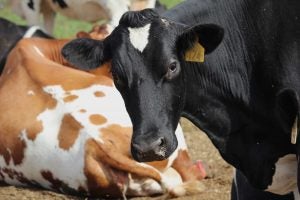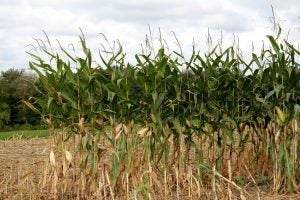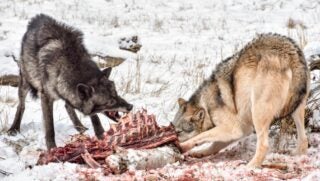No one wakes up in the morning and thinks of ways to create an unsustainable process. We all want a sustainable future, whether we are on a farm, running a business, or raising a family.
Advocacy for sustainable agriculture has increased in the past few years. I argue that agriculture has always been on the forefront of sustainability, and as an industry, we are constantly improving our sustainability practices.
Farmers want the same things that our neighbors and consumers do. We want a safe and abundant food supply for our families. Farmers want to watch our children play outdoors in the grass or woods without worrying about adverse effects. We want to make the world a better place, and raise food for the people in our communities and beyond.
Most farms in the United States, 97 percent of 2.1 million, are family owned. Farm families live closer to the farm than anyone else. If a farming practice were not sustainable, the farm family would be the first to feel adverse effects. Farmers practice sustainable agriculture because it is good for their farm and family.

What is sustainable agriculture?
According to the National Sustainable Agriculture Coalition, sustainable agriculture is an integrated system that addresses environmental health, economic profitability, as well as economic and social equity. Basically, sustainable agriculture meets today’s needs, without limiting future generations.
I am part of the 10th generation of Mountain Dairy, my family’s farm in Mansfield, Connecticut. The 11th generation is already involved. To me, our longevity is evidence that we are using sustainable practices. We also understand there is room for improvement. Mountain Dairy is actively implementing new methods that will increase our environmental sustainability.
Our choices are driven by current research from academic institutions and careful evaluation of our land and animals. However, the sustainable farming practices we implement have to be the right fit for our farm in order to be effective.
Diversity improves agriculture. There are many ways to farm. No one practice is right or wrong, just different. It makes agriculture stronger, and able to withstand challenges. We should seek diversity in all aspects of our lives, including farming.
Organic agriculture works for some but will not work for every farm. What is often referred to as conventional or traditional farming is good in some cases, but not everywhere. Some farms are small; others have thousands of acres. We need all types of agriculture to feed the growing global populations and to improve the environment.

How farms add sustainable practices
Each farm has unique challenges, including various soil types, shorter growing seasons, limited acreage, and extreme weather events. Sustainable agriculture treats each farm as an individual and adopts practices that address challenges the farm faces.
Many different practices are involved in sustainable agriculture. Examples are rotating crops, using reduced tillage methods, managing the farm as a system, adding cover crops to fields, keeping livestock and crops together, using integrated pest management (IPM), and adding agroforestry, where trees and shrubs are merged into the operation.
We have always integrated livestock and crops at Mountain Dairy because it is more efficient. Mountain Dairy is a producer-handler, meaning we are vertically integrated. We fertilize our fields with manure from the cows, and use the crops grown to feed our cows. Milk is processed on the farm in our bottling plant and shipped to consumers via our retail partners.
Soil health is a sustainable agriculture practice where many farmers have room for growth and improvement. Research shows the importance of rotating crops and using reduced or no tillage on fields. Some fields are left fallow so the soil can rest. Cover crops prevent soil erosion and add organic matter to improve the soil.
Farmers are adopting more practices that support soil health and environmental improvements. Although research shows that these practices are important, we still do not have all the answers on how to make them successful. Farmers and researchers are constantly testing new and progressive methods.
As a society, we increasingly focus on what is wrong. We need to acknowledge what is wrong — and work to improve it. But, we also need to recognize everything that is being done well.
Growing is part of being sustainable. Farmers are learning and adopting new sustainable agriculture practices to improve our farms. Not because agriculture was unsustainable before. Rather, farmers are lifelong learners, and striving for growth and improvement.
Stacey Stearns is part of the 10th generation of Mountain Dairy, a vertically integrated farm in Connecticut, and is a program specialist with UConn Extension.


